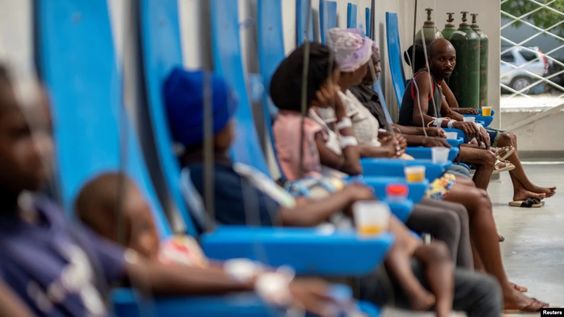Health
Dr Otabor highlights that failure to promptly treat accident victims is leading factor in fatalities

Dr. Otabor, a prominent medical professional, has drawn attention to a critical issue plaguing emergency medical care: the delay in treating accident victims.
Read Also: Burna Boy expresses regret for his actions towards Nigerian blogs and acknowledges their importance
In a statement, Dr. Otabor emphasized that this delay significantly contributes to fatalities resulting from accidents.
His remarks underscore the urgent need for improved emergency response systems and increased public awareness regarding the importance of prompt medical attention in saving lives.
Dr. Otabor stressed the significance of what is commonly referred to as the “golden hour” in emergency medicine.
This term describes the crucial first hour following a traumatic injury, during which immediate medical intervention can greatly enhance the chances of survival and reduce the risk of long-term complications.
Delays in providing medical care to accident victims can have dire consequences. Without timely intervention, injuries may worsen, leading to severe complications or even death.
Dr. Otabor highlighted the urgent need to minimize these delays to improve outcomes for accident victims.
Various factors can contribute to delays in treating accident victims, including traffic congestion, inadequate access to emergency services, and a lack of awareness among the public about what to do in emergency situations.
Addressing these factors requires a multi-faceted approach involving government agencies, healthcare providers, and the community at large.
Dr. Otabor emphasized the critical role of public awareness in addressing delays in treating accident victims. Educating individuals about the importance of seeking immediate medical attention in the event of an accident can help reduce response times and save lives.
Initiatives to raise awareness about emergency medical services and how to access them effectively are essential components of any strategy to improve emergency care.
To address delays in treating accident victims, Dr. Otabor called for the strengthening of emergency response systems.
This includes improving the availability and accessibility of ambulances, enhancing coordination between emergency medical services and healthcare facilities, and implementing measures to expedite the transportation of patients to appropriate medical facilities.
Another key aspect highlighted by Dr. Otabor is the importance of training healthcare professionals and first responders in emergency medical care.
Equipping these individuals with the necessary skills and resources enables them to provide timely and effective treatment to accident victims, thereby improving outcomes and reducing mortality rates.
Addressing delays in treating accident victims requires collaboration and cooperation among various stakeholders, including government agencies, healthcare providers, law enforcement agencies, and the public.
By working together, these stakeholders can implement comprehensive solutions to improve emergency medical care and save lives.
Dr. Otabor’s remarks serve as a stark reminder of the critical importance of timely medical intervention in saving the lives of accident victims.
As efforts continue to address delays in emergency medical care, it is imperative that all stakeholders remain committed to implementing effective solutions that prioritize the well-being and safety of individuals affected by accidents.
By working together to improve emergency response systems and raise public awareness, we can make significant strides towards reducing mortality rates and ensuring that accident victims receive the prompt medical attention they urgently need and deserve
